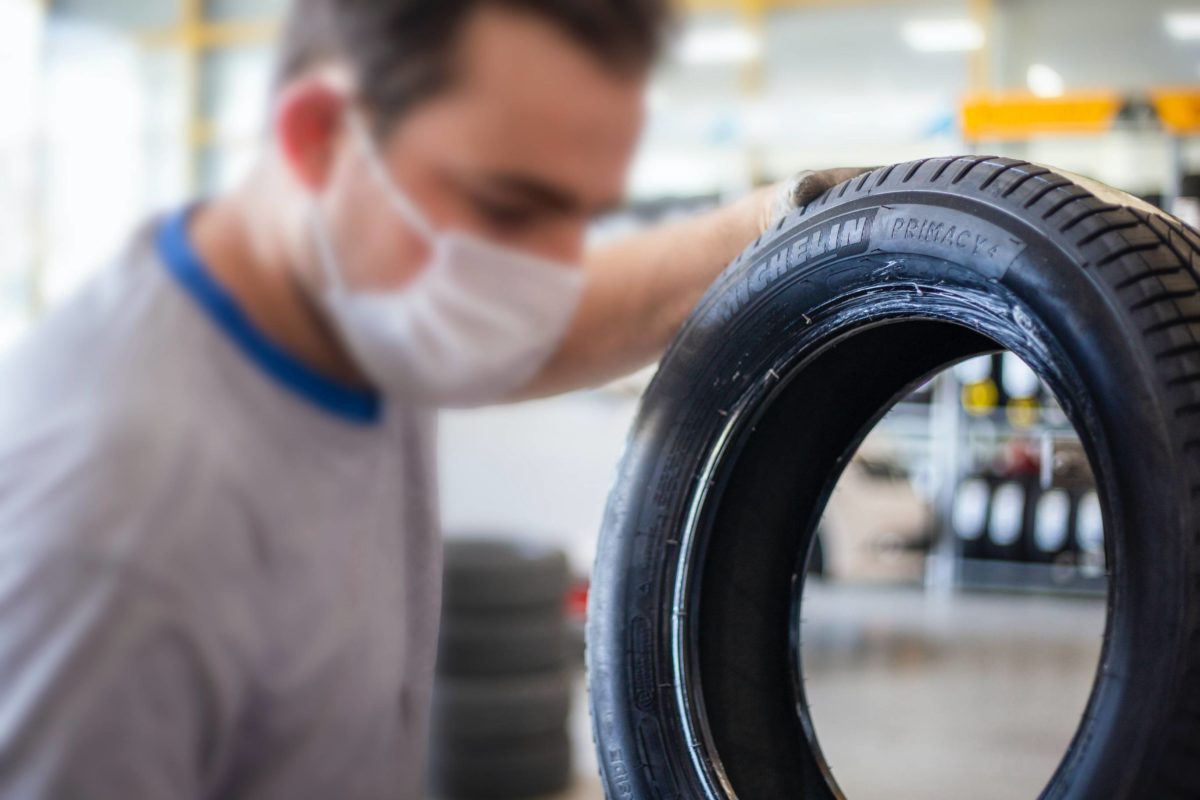While mild vibrations when driving a car are no cause for concern, a consistently vibrating car can indicate a bigger problem. Many factors can cause your car to vibrate, but a wheel or tire problem is generally the biggest reason.
If you’re looking for tires online that are cheap, you might be wondering if they will cause vibration. Well, cheap tires don’t cause vibration per se, but they can lead to problems if they’re in poor condition. This is true for all tires, whether they’re cheap or expensive.
The Most Common Causes of Tire Vibration
Cars have so many spinning and moving parts that even a slight dysfunction can cause your vehicle to vibrate. However, the most common cause of vibration is your car’s tire or wheels, which can easily be identified and repaired or replaced. Here are some typical tire and wheel issues that could be the root of your problem:
Worn-Out Tires
Tires that are bald or unevenly worn are the most common cause of high-speed vibrations. They can also impact other functionalities like steering, braking, and the overall control of your vehicle, which is why they should not be ignored.
If you suspect this is the cause of your car vibrations, properly examine your tires for abnormal wear. Inspect the sidewalls for any bubbles or bulges, and check that they are properly inflated. Any dry rot cracking or bulging could signify a broken belt, which often produces a rhythmic thumping sound and a low-speed vibration while driving.
Do not drive your car if you spot a bulge, exposed metal or fiber cords, or if the tread has separated from the tire body or the wheel. If you see this, there’s a high risk of water entering the gap between the tire and the wheel, which can cause more vibrations and increase the risk of accidents.
Flat Spots
Tires with flat spots can make a thumping spot and cause vibrations on the road. Flat spots can be caused by extreme braking or leaving a vehicle parked for a long time.
These are usually temporary, and slowly driving to round up your tire should fix the problem. In some scenarios, however, the flat spot may become permanent. In this case, it’s time to invest in new tires.
To prevent tires from wearing unevenly, you should rotate them in line with the manufacturer’s recommended service intervals. This can increase the lifespan of your tires and prevent problems like flat spotting.
Overinflated or Underinflated Tires
Overinflated or underinflated tires are one of the most common causes of driving vibrations. Underinflated tires can quickly overheat and are prone to abnormal wearing at the outer edges, which can cause low and high-speed vibrations. If ignored, this can cause the tire temperatures to rise significantly, which can cause a blowout in the worst-case scenario.
Overinflated tires are stiffer and have rigid treads, which can also trigger vibrations. Because there is less tire and road contact, the tread can quickly wear out in the center, making these tires prone to blowouts and permanent damage.
Unbalanced Wheels
If you cannot detect a problem with your tires, your car’s wheels may be the source of the vibrations. Out-of-balance wheels vibrate irregularly up and down, which can cause your car to shake while driving.
The problem can also be with a wheel weight. Sometimes, when the wheel weight falls off, the car may vibrate slightly. If you note slight discoloration on your wheel, this could signify that the wheel weight is off and the tire needs rebalancing. If you suspect this problem in your vehicle, it’s always recommended to get your tires and wheels professionally balanced–this generally costs around $50 to $100 and almost always fixes the issue.
Damaged Wheels
A bent, damaged, or cracked wheel can also cause your vehicle to vibrate. Simple driving incidents such as bouncing on a curb or hitting a pothole can cause mild damage to your wheel, which can become a bigger problem if ignored.
Generally, wheel balancing can counter such minor wheel issues. But to be on the safe side, a full mechanic check-up is recommended. This can help identify issues like problems with wheel roundness or other deformities. If your wheel is severely bent or out of shape, professional repair from a reliable mechanic is the best way to go. Looking for more tire information? Take a look at our post on why sports tires might be cheaper than touring tires.


